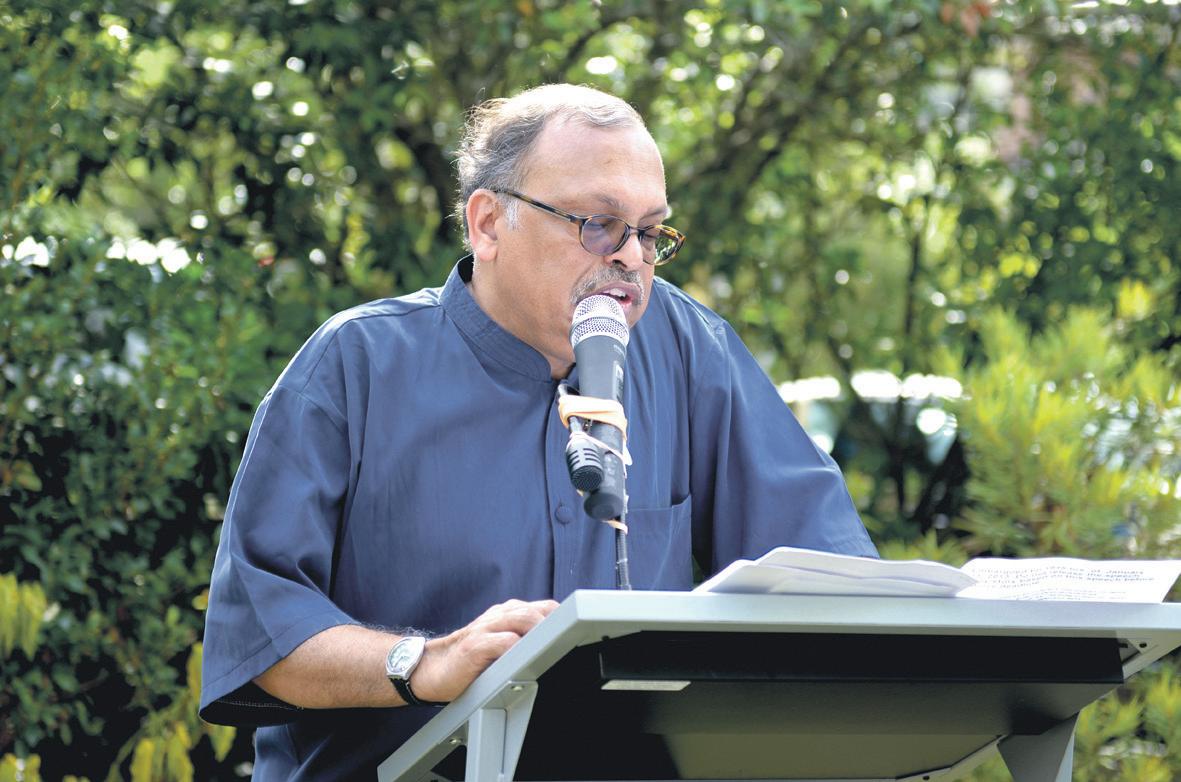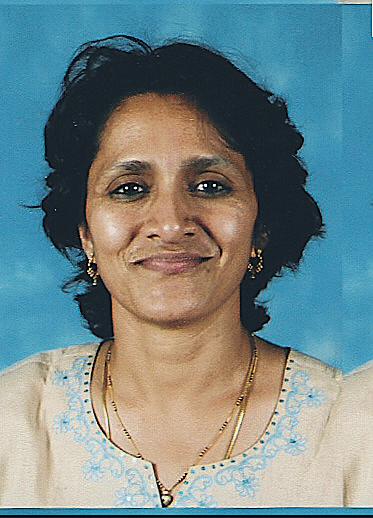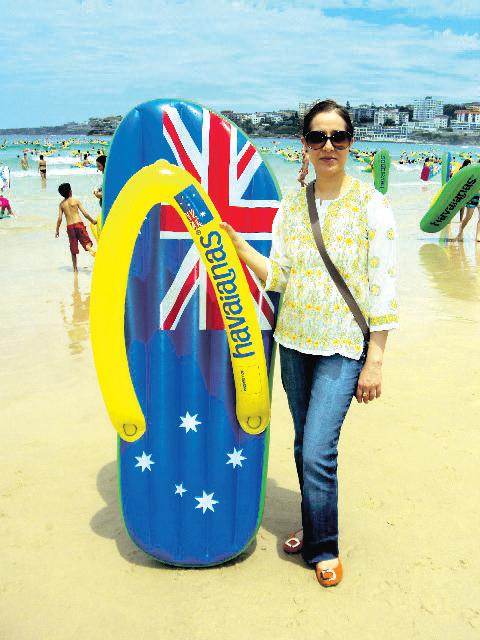
4 minute read
What January 26 means to me
from 2013-02 Sydney (1)
by Indian Link
We know it’s Australia Day and India’s Republic Day, but does this day have greater personal significance?
BY NIMA MENoN
The culture, history and heritage of a country comes to fore on occasions like this. January 26 is a special and significant day for both Australians and Indians for historical reasons, though the connotations are different. Let us step a moment back in history to recapture the reason why this day is deemed special.
Aussie, Aussie, Aussie, oye, oye, oye!
It was on this day in the year 1788 that a fleet of 11 ships lead by Captain Arthur Phillip landed at Port Jackson in New South Wales. The day was first celebrated as ‘Foundation Day’ in 1808. Thirty years later, this day became Australia’s first public holiday; but it wasn’t until 1946 that the day was celebrated as ‘Australia Day’ in all states. So there is not a lot of history attached to this day, except for the fact that it is the day of the ‘first landing’. Indigenous Australians have often felt that their culture that thrived before the ‘first landing’ has been overlooked in the celebrations. Australian celebrations on the day are marked with fun and frolic the Aussie way, which would be a day out on the beach, BBQ with friends and of course, the Australia Day cricket match. However with time, a lot of meaning and significance has been added to this day. Eligible migrants are granted citizenship on January 26 and prominent citizens who have made a remarkable difference or contribution to Australian society are honoured with the ‘Australian of the Year’ award. The Australian flag is flown with pride on cars, from balconies and on rooftops. But I have often wondered during all these displays, how often have people asked themselves the question, “What does it mean to be an Australian?”
Jai Hind and Jai ho! India has a strong history, and embedded in it is the sacrifice of thousands of known and unknown Indians who fought fearlessly and fiercely for deliverance from foreign rule. A country that was once the ‘Golden Bird’ had to start all over again and establish a government that would be governed by the people, would be of the people and for the people. After the declaration of independence on August 15 1947, Dr Ambedkar was given the task of formulating the Constitution that would govern free India. This actualised on January 26, 1950 and Indians all over the world celebrate this day with great fervour and patriotism.
The date gained prominence in 1930 when the Indian National Congress declared it as the day of ‘Complete Freedom’ (Purna Swaraj). Every year on this day, with great pride the country showcases its tapestry of cultures and traditions that make the fabric called ‘India’. Capital New Delhi’s main boulevarde Rajpath comes alive with tableaux from various states and social organisations, cultural shows by school students and artists from different states, marching bands, and a procession of children who have won bravery awards for their extraordinary feats. As well, various gallantry recipients add more glitz to the show. The world gets a glimpse of India’s military prowess and sophistication. Many Indians travel to Delhi and brave the city’s hostile weather to be a part of this spectacular parade. The celebration culminates with the ‘Beating of the Retreat’ ceremony by the armed forces bands on January 31. But during all this, how many have asked themselves the question, “What does it mean to be an Indian?”
Double the pride!
I have had the unique privilege of watching the Republic Day parade and the ‘Beating of the Retreat’ live, and have felt myself swell with pride. The Indian National Anthem always gets my heart racing and there is something about it that fills me with nostalgia every time I hear it, no matter where I am.
After nearly a decade in this country that I call my own today, I sing the Australian National Anthem with pride, savouring the meaning of the words, ‘Advance Australia Fair’. I strongly believe that the respect I feel for this nation and its values, the camaraderie I share with my neighbours and colleagues, and the ease with which I have slid into the framework of this society have been enthused by my strong Indian roots. Even today when my colleagues or friends come over for lunch, I prefer cooking the entire meal and serving my guests before I sit down at the table. There are quite a few such idiosyncrasies in me that may be called old-fashioned, but it is a part of my cultural make-up, a part of who I am.
India’s Consul General Arun Goel reads out the Presidnt of India’s message at his Lindfield home on Republic Day, while Sonal Chopra of Pennant Hills is taken in by the “thong race” at North Bondi on Australia Day.
So as an Indian-Australian what does January 26 mean to me? It is a day that I feel proud to be born an Indian, there is nothing that can take that away from me. It is the foundation on which my beliefs are based. It is also a day on which I feel fortunate to be a part of Australia, where my talents and capabilities have been finetuned and my children are being raised in an environment where there are no societal pressures, and they have the freedom to choose a career path and a lifestyle that suits them the most. It is a day when I acknowledge that I am indeed, a well-balanced amalgamation of the East and the West!

Australian celebrations on the day are marked with fun and frolic the Aussie way, which would be a day out on the beach, BBQ with friends and of course, the Australia Day cricket match.
Every year on this day, with great pride the country showcases its tapestry of cultures and traditions that make the fabric called ‘India’








